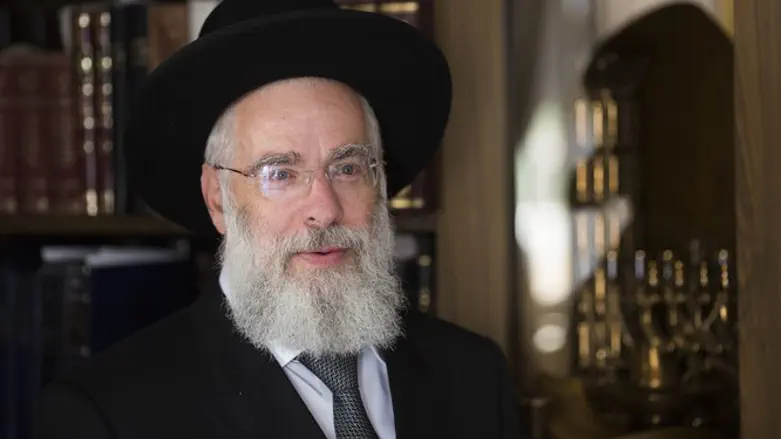
Rivkah makes a momentous decision and undergoes a spiritual transformation; she assumes her role in the nascent Jewish nation and becomes someone new.
Our parasha opens with the story of the purchase of the cave of Machpelah. After an extended negotiation process, Avraham paid in full for the field of Machpelah and the cave within the property limits. The verse invokes a curious term to describe the finalized sale: “The field of Ephron which was in Machpelah arose [va’yakam]”.

Rivkah makes a momentous decision and undergoes a spiritual transformation; she assumes her role in the nascent Jewish nation and becomes someone new. On a straightforward level, the word va’yakam refers to the completed business transaction. The ownership deed was transferred from Ephron the Hittite to Avraham, and Avraham subsequently became the new owner of the Machpelah property. Homiletically though, the use of the word va’yakam is very telling:
On a straightforward level, the word va’yakam refers to the completed business transaction. The ownership deed was transferred from Ephron the Hittite to Avraham, and Avraham subsequently became the new owner of the Machpelah property. Homiletically though, the use of the word va’yakam is very telling:
“The field of Ephron arose [va’yakam]”: It became elevated because it was transferred from the possession of a commoner to the possession of a king.
The mundane transfer of property takes on entirely different proportions when it involves Avraham, “the prince of God in our midst” as he lays the foundations of the covenantal nation in the land of Canaan. The land itself is transformed. “It became elevated” and assumed an important place in this new nation’s history and future, yet untold.
Several verses later, the text uses a similar word to describe Rivkah as she sets out on her journey to the land of Canaan to become the wife of Yitzchak: “Then Rivkah arose [va’takam] with her maidens and they rode upon camels. Like the earlier episode in our parasha, the word va’takam represents the profound change that Rivkah underwent. In an act of deep faith and courage, Rivkah left her family behind to assume her place in the covenantal community. She did not equivocate. When pressed by her shrewd brother and mother: “Will you go with this man?”, Rivkah firmly responds: “I will go”. Rashi adds another dimension to her decisive answer: “I will go on my own accord, even if you do not approve” (Rashi, Bereishit 24:58).
Her family’s doubts and objections notwithstanding, Rivkah is determined to join the transcendental family of Avraham. Rivkah’s decision was not predicated on the marital agreement reached between Avraham’s loyal servant and her family.
Her choice was driven by the strength of her personality. Rivkah is someone who sought out spirituality and wanted to ascend. Accordingly, “Rivkah arose”, not merely in the sense of mounting the camel that would carry her off to her new life, but in the sense of being “elevated” as she “was transferred from a commoner to a king”.
Rivkah makes a momentous decision that will change her life and the lives of her descendants. She undergoes a spiritual transformation; she assumes her role in the nascent Jewish nation and becomes someone new.
This movement, this transformation that Rivkah undergoes, is emblematic of the way that the Patriarchs, the avot, lived their lives. The prophet Zechariah declares in the name of God: “I will enable you to move among [the angels] who stand still”. Angels are rooted. Angels stand still. People of substance though are in a constant state of flux. They are always trying to ascend, to engage in the proverbial and perpetual process of “lekh lekha”. This process is not always easy, but it is a deep expression of how we approach our lives and our spiritual goals.
This process is also unique to the land of Israel. It is specifically here that we are elevated and transformed, both as individuals, and as a collective. Avraham cautions his servant “Beware not to return my son there”. Under no circumstances may the covenantal family lay down its roots in the land of Charan.
The land of Israel is the preeminent spiritual setting for the process of tekuma, the spiritual elevation and renaissance that defines us as a people, then and now.
Rabbi Yaakov Shapira is the Rosh Yeshiva of Yeshivat Mercaz HaRav in Jerusalem